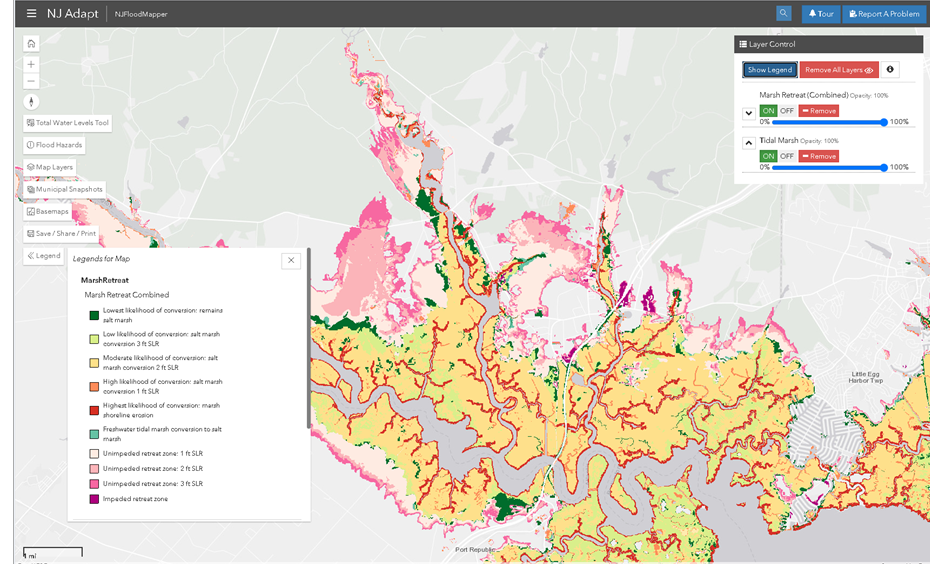
A graphic related to the Coastal Ecological Restoration and Adaptation Plan.
A team led by Rutgers University is working with the New Jersey Department of Environmental Protection (NJDEP) to develop a Coastal Ecological Restoration and Adaptation Plan (CERAP) for New Jersey’s coastal marshes, estuaries and back-bays.
The CERAP project team, which was awarded a $150,000 grant from NJDEP, includes the Rutgers University Center for Remote Sensing and Spatial Analysis (CRSSA), the Jacques Cousteau National Estuarine Research Reserve (JCNERR), the Partnership for the Delaware Estuary and other environmental non-profits. JCNERR, one of the 29 national estuarine reserves created to promote the responsible use and management of the nation’s estuaries through a program combining scientific research, education and stewardship, is managed by Rutgers NJAES. The preserve includes more than 115,000 acres of forested uplands, wetlands, aquatic habitats and barrier islands.
According to Richard Lathrop, director of CRSSA and professor in the Department of Ecology, Evolution and Natural Resources, “the output of this project will be a publicly available web-based visualization and decision support tool with information on coastal issues of concern and an atlas of completed and prospective restoration/adaptation projects.” Lathrop is also the inaugural holder of the endowed Johnson Family Chair in Water Resources and Watershed Ecology at Rutgers.
Prospective project sites will be collected from a wide cross-section of local stakeholders to ensure that the project is informed by both local and state priorities. “This local input will form the basis for a more detailed characterization of the project sites for their alignment with state priorities,” added Lathrop.
These priorities include addressing a number of identified coastal issues of concern and enhancing carbon sequestration, ecosystem health and community resilience.

